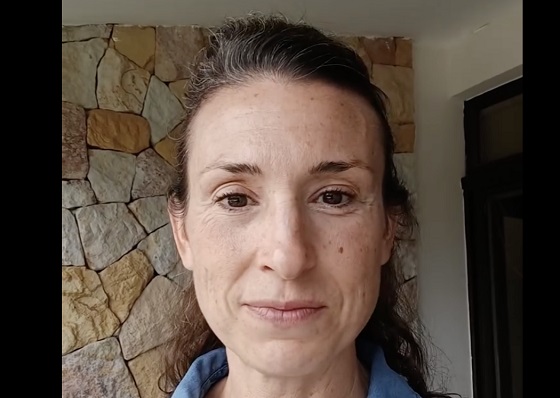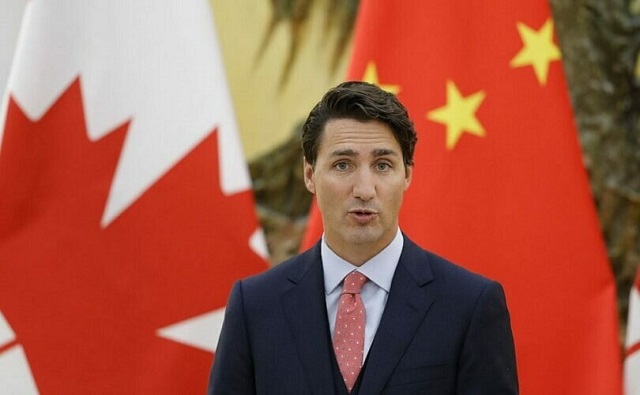Bruce Dowbiggin
Can Canada’s Mens Soccer Team Save The Nation?
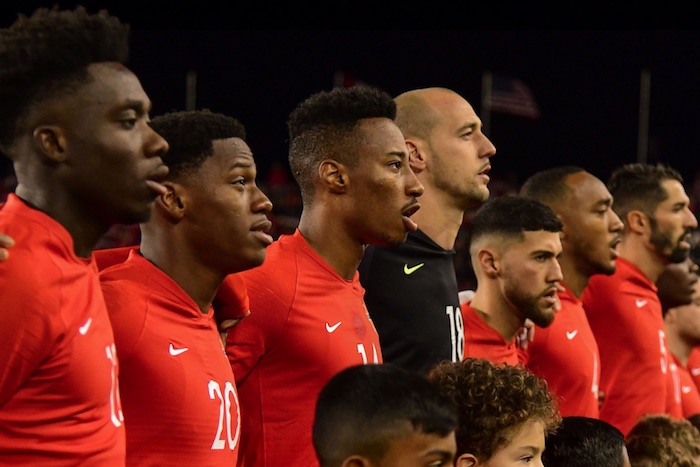
An academic of our acquaintance insists that the only things keeping Canada united are hockey and the equalization system. To that list we might now add soccer. Till at least the FIFA Men’s World Cup in November, Canada is going to be united in its excitement that Canada has finally qualified for soccer’s Big Dance for the first time since 1986.
For those who don’t know, the FIFA World Cup is the greatest single-sport event in the world. Imagine Eurovision without the sequins and the spandex. Staged by people who aren’t shamed to be bribed by Middle Eastern theocracies. The Big One.
Following the path set out by Canada’s superb woman’s team— that won the Olympic gold medal last year— Canada now has an exciting, talented team of men to take on the demigods of world futbol. Two of those demigods are former World No. 1 team Belgium and Croatia, with whom Canada now shares a place in Group F of the tournament being played in November (to avoid the balmy summer temperatures of Qatar, the host nation.)
How much of a leap does this represent? Back in 2018, Canada’s men were ranked 122nd out of 207 teams. That put them in the strata of Niger and Liberia. Now they face the world’s No, 2 (Belgium) , 16 (Croatia) and 24 (Morocco) in the group drawn last week.
In the years since 1986 talented Canadian products have searched their family tree to see if they might qualify to play for another country— one with a chance at making the World Cup or even winning the prize. Now players with dual citizenships— Stephen Estaquio has Portuguese and Canadian citizenship— are choosing to join the young Canadian squad coached by John Herdman.
It’s safe to say that if Canada scores it will not be jumping en masse into a snowbank, as it did on a frosty night in Edmonton when they beat Mexico 2-0. To be honest, just scoring goals at this level will be a feat for a nation that has not been to the top of the soccer world in decades.
Canada has legitimate world-class scorers in Alphonso Davies (Bayern Munich), Cyle Larin (Beşiktaş JK), Jonathan David (Lille) and Taj Buchanan (Brugge). But none has been to this level before, and avoiding being overwhelmed with excitement and nerves is as much a task as working on set pieces.

The excitement for this World Cup and the 2026 World Cup— which Canada is to co-host with the U.S. and Mexico— is making some people see dollar signs. Specifically, the politicians in the Canadian cities interested in hosting a sliver of the WC 2026 are seeing the huge price tags for two weeks of excitement. Some are blanching (Montreal), some are full speed ahead (Toronto) and some (Vancouver) are flip-flopping on the cost of hosting a potential Canadian men’s team home game.
Just how expensive will it be for a Canadian city to host some of the 10 preliminary-round games assigned by FIFA? Chris Selley of The National Post has a few numbers. “Toronto Mayor John Tory’s Executive Committee adopted a staff proposal to forge ahead with the city’s bid to host a maximum of five preliminary-round games. The projected cost? Ahem: $290 million, with the city picking up around $90 million and other levels of government the rest. For five soccer games.”
Among the costs of doing FIFA business: “– $64 million for upgrades to BMO Field that it would not otherwise need, notably an expansion to 45,000 seats.
– $41 million for training sites of a calibre that the city does not otherwise need.
– $32 million to run the stadium for the five games. FIFA keeps the ticket revenues.
– $40 million for safety and security.
– $17 million to operate the FIFA-mandated “FanFest,” in a city that turns itself into a World Cup FanFest all on its own every four years.
– $42 million booked under “contingency, inflation, tax.”
Hands up everyone in Edmonton and Vancouver who think their cities can afford this kind of chump change for the glory of having the world’s attention for a couple of hours? The sentiment about hosting these mega-projects in Canadian cities was summed up when Calgarians soundly rejected a bid to host the 2026 Winter Olympic Games.
Toronto’s previous experience with bidding for the Sumer Olympics has likewise met with tepid support from taxpayers unimpressed with paying the GDP of a small African nation to the International Olympic Committee.
Add to that Canada is predicted to be dead last in the OECD for per-capita GDP growth 2020-2030 and have the second highest per-capita debt to GDP ratio, and you can see that throwing a two-week party might not be the best idea for an economy struggling to pay for the Liberals’ vanity projects.
So the recipe might be: Cheer the Canadian men (and women). Pray that this tranche of wonderful young players is nio a fluke but a trend. And finally, tell any mayor who wants to stage the 2026 FIFA tournament in their city that diverting $300 million is a ticket to the unemployment line.
Bruce Dowbiggin @dowbboy is the editor of Not The Public Broadcaster (http://www.notthepublicbroadcaster.com). The best-selling author was nominated for the BBN Business Book award of 2020 for Personal Account with Tony Comper. A two-time winner of the Gemini Award as Canada’s top television sports broadcaster, he’s also a regular contributor to Sirius XM Canada Talks Ch. 167. His new book with his son Evan Inexact Science: The Six Most Compelling Draft Years In NHL History is now available on http://brucedowbigginbooks.ca/book-personalaccount.aspx
Bruce Dowbiggin
Coyotes Ugly: The Sad Obsession Of Gary Bettman

It came to this. Playing in the 6,000 seat Mullet Arena on the campus of Arizona State. Owned by a luckless guy who eschewed the public spotlight. Out of the playoffs, their bags packed for who knows where, the Arizona (née Phoenix) Coyotes gave an appreciative wave to the tiny crowd gathered to say Thanks For The Memories.
With that they were history. Although NHL commissioner-for-life Gary Bettman has promised the last in a set of hapless owners that he can revive the franchise for a cool billion should he build the rink that no one was willing to build for the Yotes the past 20 years.
The Arizona Republic said good riddance. “Metro Phoenix lost the Coyotes because we are an oversaturated professional and college sports market with an endless supply of sunshine and recreational choices. Arizona may have dodged a slapshot:
We have the NFL Cardinals, the MLB Diamondbacks, the NBA Suns, MLB spring training, the WM Phoenix Open, the Phoenix Rising, the WNBA Mercury, the Indoor Football League Rattlers and the Arizona State Sun Devils. There hasn’t been a household name on the Coyotes since Shane Doan, and half of Phoenix probably doesn’t know who he was”.
Likely they’ll be a financial success in Salt Lake City where there’s a viable owner, lots of money and a will to make it work. They’ll need a will because— stop me if you’ve heard this before about the Coyotes— the rink they’ll play in this fall has only 12,500 unobstructed views for hockey.
Watching this farce we recalled getting a call from Blackberry co-founder Jim Balsillie in 2008, shortly after our book Money Players was a finalist for the Canadian Business Book of The Year. We’d written a fair bit about the Coyotes in our work and someone had told Balsillie we might be the ones to talk to about a plan he was concocting to buy the bankrupt Coyotes and eventually move them to Hamilton.

Balsillie was salty over the way he’d been used as a stalking horse in the financial troubles of the Pittsburgh Penguins in 1990s. Flush with money from the huge success of RIM, Balsillie offered to buy the Pens, with an eye to moving them to southern Ontario if Pittsburgh didn’t help build a new arena for the team.
In time, Balsillie saw that Bettman was only trying to protect the investment Mario Lemieux and others had in the Pens. Balsillie was the black hat who eventually spooked Pittsburgh into giving the current owners what they wanted. At the end of the day, Mario got his money and Balsillie was given a “thanks for trying”: parting gift of nebulous promises.
Still smarting, Balsille vowed not to be used again. in his desire to bring the NHL to southern Ontario. So when the Coyotes owner Jerry Moyes threw the keys to the team on Bettman’s desk, he saw an opening in the bankruptcy that followed. Seeing Bettman as the impediment, Balsillie decided to buy the team out of bankruptcy, a process the NHL could not legally prevent.
What Balsillie wanted to know was “What then? How would Bettman fight back?” We told him that no one flouts Bettman’s authority within the NHL. (All the current owners since 1993 have come aboard on his watch.) And that he’d have to get the Board of Governors to approve his purchase. Odds: Nil.
That’s what happened. Rather than admit that the Valley of the Sun was poisoned for hockey, Bettman found another series of undercapitalized marks to front the franchise while the league quietly propped up the operation. No longer was the Coyotes’ failure about the fans of Arizona. It was about Gary Bettman’s pride.

Protestors stand outside a press conference in Tempe featuring Arizona Coyotes executives discussing propositions related to a new arena and entertainment district. (Photo by Brooklyn Hall/ Cronkite News)
Where he had meekly let Atlanta move to Winnipeg he fought like hell to save Arizona. And his power. (His obstinacy on U.S. network TV is another story.)
Fast forward to last week and the abject failure of that process. The Arizona Republic naively fawned on Bettman for his many attempts to save the team. In fact, they were just attempts to buttress his grip on the league. While the Coyotes may have been a mess, Bettman has succeeded in preserving the investments of most of the business people who bought his NHL business prospectus.
Sometimes it meant riding into Calgary to chastise the locals for their parsimony in not giving the Flames a new rink. Ditto for Edmonton. Ditto for Winnipeg and other cities. Other times it was to shore up weak partners to protect the equity of other prosperous cities. Sometimes it was to tell Quebec City, “Not gonna’ happen.”
For his loyalty to the owners and through some luck— Gretzky to the Kings— Bettman has made the NHL work in places no one might’ve imagined. Nashville. Raleigh. Tampa. Las Vegas. Dallas. Not at the level of the NFL, NBA or MLB, but at a comfortable equity-affirming status. Nothing happens without his say-so in the NHL. Or without him getting credit. Secondary NHL execs who wanted credit for their innovations were quietly punted.
When Houston finally gets a franchise from Gary they’ll part with $1.5 billion for the honour. While the commissioner has played down new franchises and expanded playoffs, you can bet your last dollar that he’s told owners they’re in line for more expansion cash— cash they don’t have to split with players in collective bargaining.
One more certainty. As long as Bettman rules the NHL you won’t see an NHL team back in Arizona.
Bruce Dowbiggin @dowbboy is the editor of Not The Public Broadcaster A two-time winner of the Gemini Award as Canada’s top television sports broadcaster, he’s a regular contributor to Sirius XM Canada Talks Ch. 167. Inexact Science: The Six Most Compelling Draft Years In NHL History, his new book with his son Evan, was voted the seventh-best professional hockey book of all time by bookauthority.org . His 2004 book Money Players was voted sixth best on the same list, and is available via brucedowbigginbooks.ca.
Bruce Dowbiggin
Why Are Canadian Mayors So Far Left And Out Of Touch?

‘The City of Edmonton pays for a 22-person climate team but doesn’t know who on that team is responsible for what, or what that team has accomplished. Meanwhile, Council takes a pay raise and bumps our property taxes by 8.6%” @michaelistuart
We just returned from a long trip to discover that the City of Calgary wants to potentially re-zone our neighbourhood. Bridle Estates is a collection of 175 bungalow villas for people aged 55-plus. While some people still work most of the inhabitants are retirees. The city’s earnest idea is to create low-cost housing for the tens of thousands arriving here in the city from away.
You can see why a city hall obsessed with white privilege wants to democratize our neck of the south-west corner of the city. Enforced justice has a great tradition. 1970s American cities decided that bussing was the antidote to segregation. After a SCOTUS decision allowing the practice in 1971 (back when liberals owned the court) progressives pushed through an aggressive plan to bus kids from the inner city to the leafy suburbs. And vice versa.
It worked like a charm. For conservatives, that is. It radicalized a generation of voters who soon installed Ronald Reagan as president, and empty buses went back to the depot. The Democrats went from the party of the people to the party people in Hollywood. With time dulling memories, contemporary Woke folk are reviving the integration dream. This time the mostly white suburbs will bear the brunt of the government’s immigration fixation (400K-plus in the third quarter).

There are meetings planned where citizens will be able to address their elected officials— no doubt in a respectful voice. But anyone who’s dealt with Climate Crisis Barbie— Mayor Jyoti Gondek— has much optimism. This is a mayor who exploited a three-way split in centre-right voting here to declare a Climate Emergency on her first day in office.
Then she rolled out hate-speech laws to protect her from being razzed in public. For this and other fabulist blunders— her messing with the new arena project drove a worse deal and a two-year delay in a home for the Calgary Flames— she faced a recall project (which failed to collect over 400K voters’ signatures).
With a housing bubble expanding everyday, Her Tone Deafness has decided that owning a home is so passé. ”We are starting to see a segment of the population reject this idea of owning a home and they are moving towards rental, because it gives them more freedom.” She added that people have become “much more liberated around what housing looks like and what the tenure of housing looks like.”
As the Calgary’s schmozzles and Edmonton’s dabble in climate extravagance illustrate the municipal level of government in Canada is a few lobsters shy of a clambake. Across the country major cities are in the hands of radical NDP soldiers or virtue warriors who would rather have symbols than sewers to talk about.
In Toronto, Jack Layton’s widow Olivia Chow is leveraging her 37 percent mandate to make Toronto a kinder, Wok-er city. In Vancouver and Victoria, B.C., the open-air drug agendas of new mayors and city councils have sent capital fleeing elsewhere. Despite crime and construction chaos, Montreal mayor Valerie Plante won a second term, by emphasizing her gender.

In times when the coffers were full, this ESG theatre might have been a simple inconvenience. But since the federal and provincial governments began shoving responsibilities and costs downward to municipalities there is no wiggle room for grandstanding politicians at the city level. Or for hapless amateurs.
With the public incensed over residential property tax increases on one side and the blandishments of aggressive developers on the other, competent governance has never been more needed in the urban areas. While feds can (and have) printed money to escape their headaches and the provinces can offload costs onto the cities, the municipalities have no room for risk.
The time bomb in this equation is the debt load that the three levels can sustain. After this week’s budget, federal spending is up $238B, or 80 percent since 2015. Coming off this free-spending budget the feds have pushed the federal debt to more than $1.2 trillion this year (in 2015, the debt was $616 billion.) None of the provinces has shown any appetite for the 1990s-style cuts to reduce their indebtedness. Leaving cities to crank the property-tax handle again.
So far, Canada’s cities have been able to use friendly municipal bonds to ease their fiscal problems. But if the Canadian economy continues its tepid performance with no reduction in debt, financial experts tell us that there could be a flight from Canadian municipal bonds— with a consequent spike in interest rates elsewhere.
The backlash on free-spending governments will be severe— and restricted municipalities will be hardest hit. None of this is resonating with Canadians still flush with cash from Covid. The stock markets are still buoyant and those living in cashbox houses are counting their dividends. Willful denial is the Trudeau legacy.

Which is why so many Canadian were shocked last week when American AntiTrump media star Bill Maher did an intervention on Canadian conceits. Using the True North as his warning to America, Maher ripped apart the gauzy leftist dream of Canada as the perfect society, the Sweden north of Estevan. By the time he was done, the single-payer myth was bleeding on the ground.
Maher knows that the bill is coming due for free-spending Canada and its climate charlatans. (The IMF is already warning of a global crisis over debt loads.) The question is: will Canadians come to the same conclusion before it’s too late to save the cities?
Bruce Dowbiggin @dowbboy is the editor of Not The Public Broadcaster A two-time winner of the Gemini Award as Canada’s top television sports broadcaster, he’s a regular contributor to Sirius XM Canada Talks Ch. 167. His new book Deal With It: The Trades That Stunned The NHL And Changed hockey is now available on Amazon. Inexact Science: The Six Most Compelling Draft Years In NHL History, his previous book with his son Evan, was voted the seventh-best professional hockey book of all time by bookauthority.org . His 2004 book Money Players was voted sixth best on the same list, and is available via brucedowbigginbooks.ca.
-

 Frontier Centre for Public Policy21 hours ago
Frontier Centre for Public Policy21 hours agoThe tale of two teachers
-
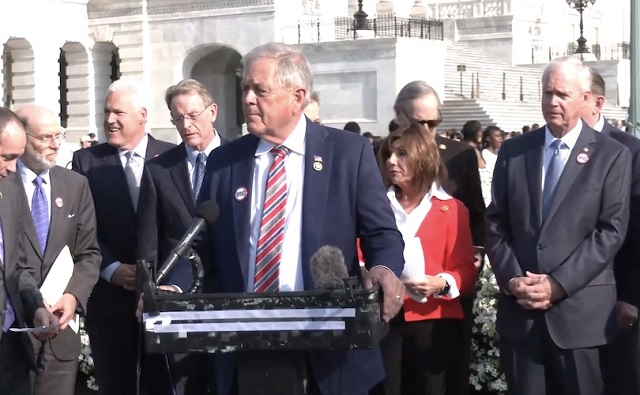
 CBDC Central Bank Digital Currency2 days ago
CBDC Central Bank Digital Currency2 days agoLawmakers, conservatives blast WHO plan for ‘global governance’ on future pandemics
-

 COVID-191 day ago
COVID-191 day agoJapanese study finds ‘significant increases’ in cancer deaths after third mRNA COVID doses
-

 Brownstone Institute1 day ago
Brownstone Institute1 day agoPfizer Lied to Us Again
-

 Brownstone Institute1 day ago
Brownstone Institute1 day agoDid Lockdowns Set a Global Revolt in Motion?
-
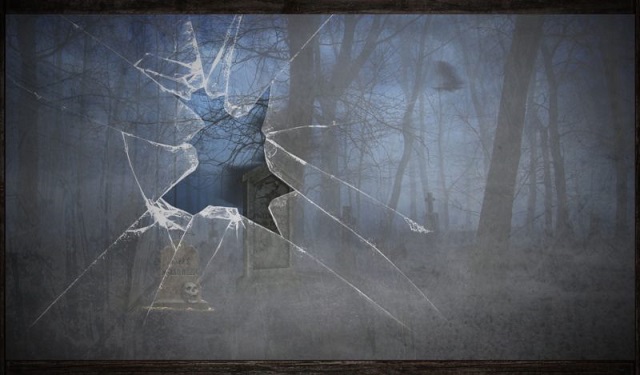
 Brownstone Institute1 day ago
Brownstone Institute1 day agoIs the Overton Window Real, Imagined, or Constructed?
-

 Business9 hours ago
Business9 hours agoMaxime Bernier warns Canadians of Trudeau’s plan to implement WEF global tax regime
-

 Alberta8 hours ago
Alberta8 hours agoAlberta moves to protect Edmonton park from Trudeau government’s ‘diversity’ plan





